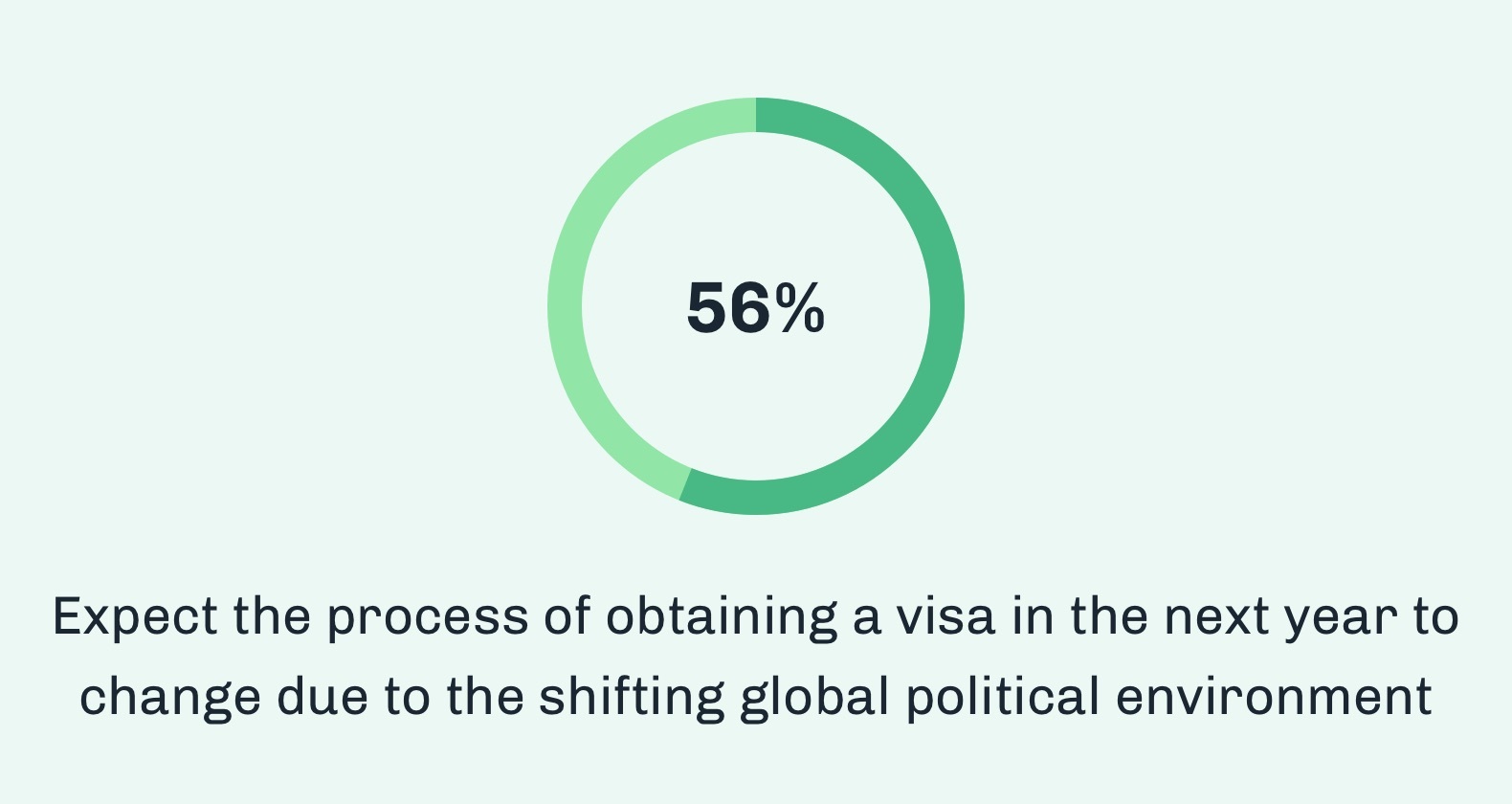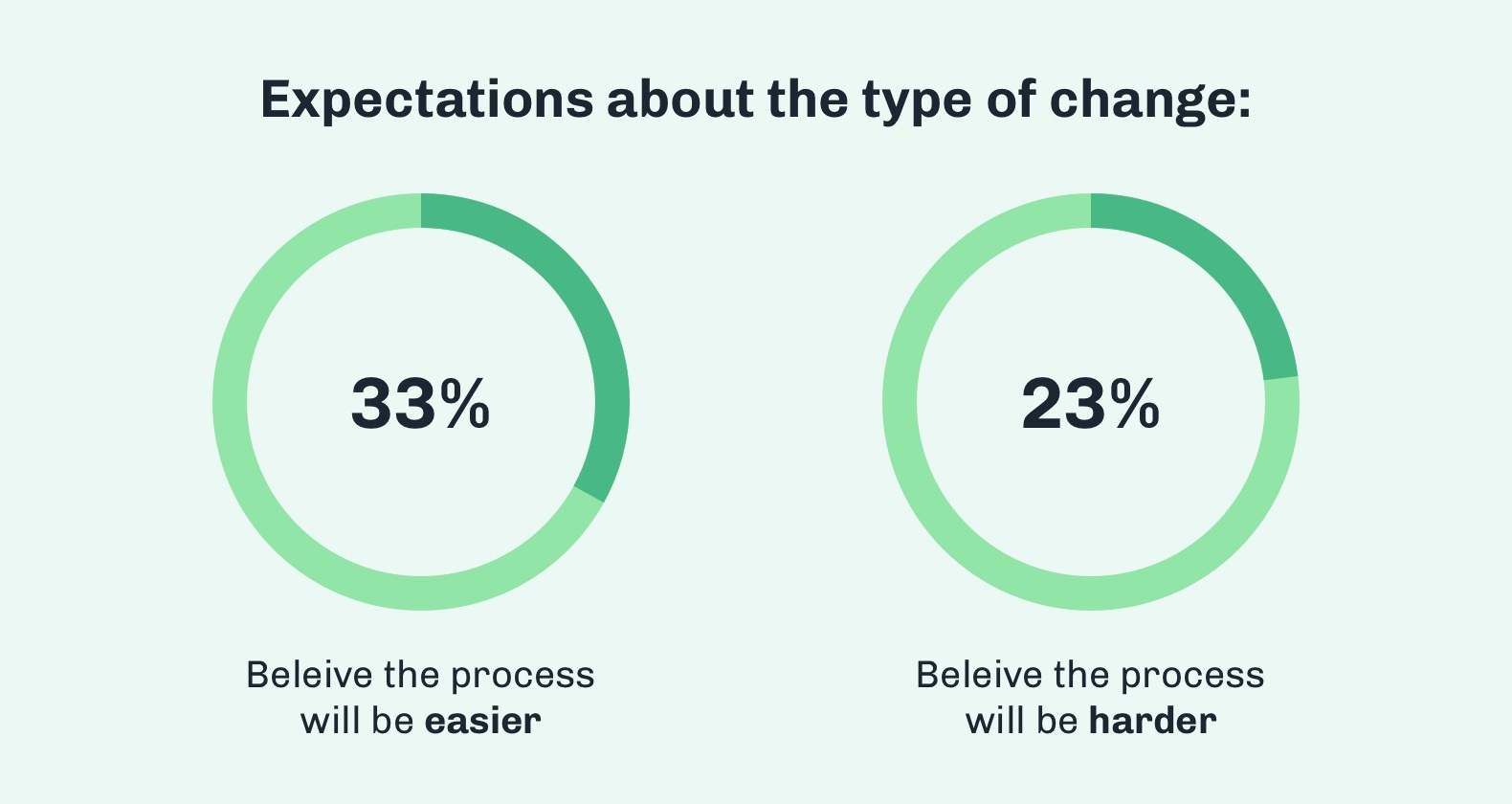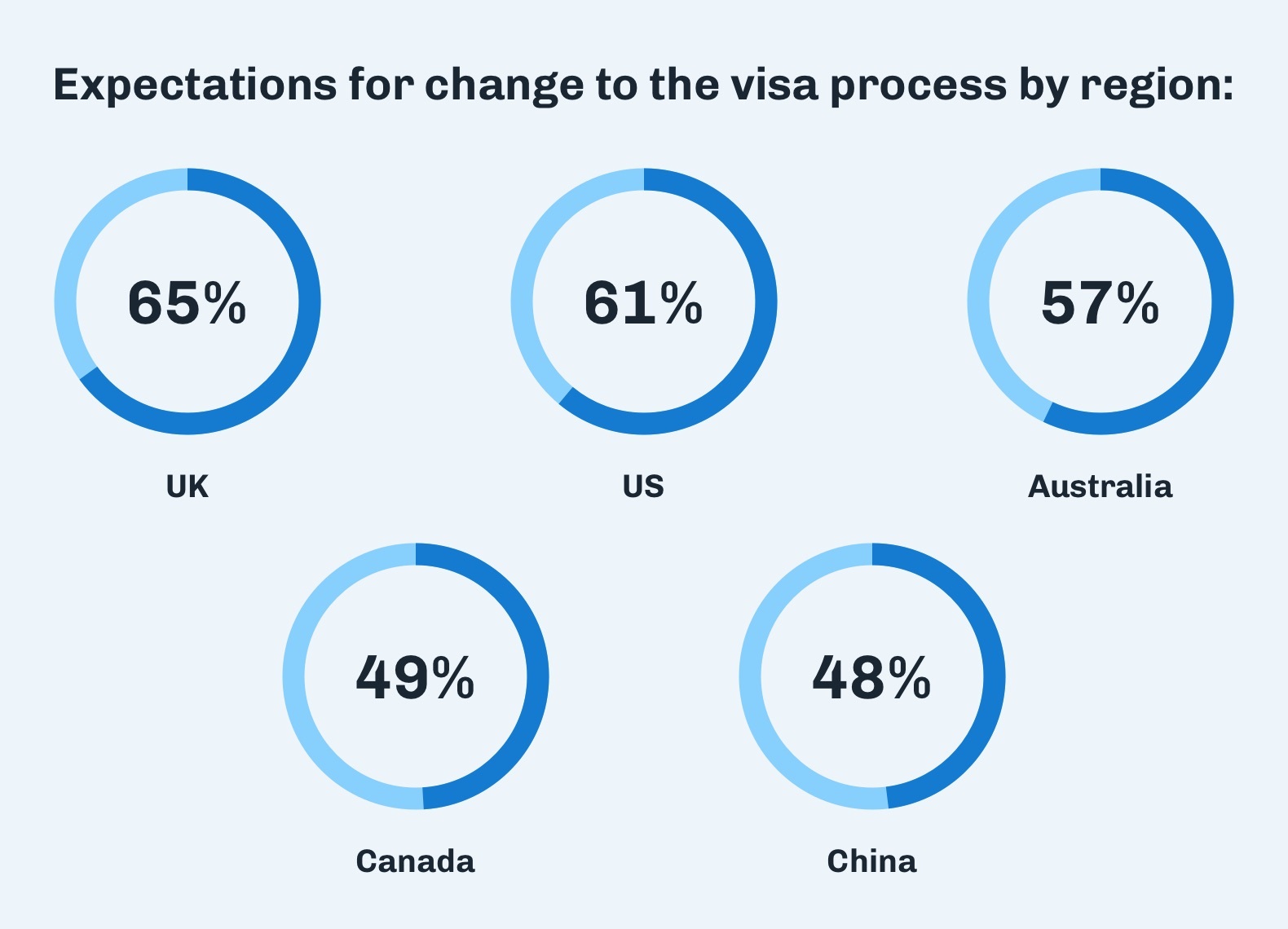
With demand high and travel reopening, one of the only challenges left for students on their way to study abroad is getting the visa that will let them do so. Luckily, most of them are not overly concerned about it.
That was the conclusion of independent research of more than one thousand students surveyed by Flywire to get a better understanding of the state of global education as the industry emerges from a once-in-a-lifetime pandemic. Students from Australia, Canada, China, the United Kingdom and the United States—five of the largest contributors of students to the global education market—offered their thoughts on whether the pandemic and the global political environment would affect how they got a visa.
Overall, the results were a positive signal of optimism about the pandemic visa process.
The winds of change
Of the students surveyed, 56% thought that the shifting global political climate would change the way they would apply for a visa in the future. In fact, more students were optimistic about the potential changes than were pessimistic, with one-third feeling that the changes would make the process easier, and 23% believing that it will become more difficult.
Responses fluctuated slightly depending on the country students represented, likely because of differing political environments.


Skepticism in the U.K.
In the U.K., 65% of students said that they thought the process for attaining a visa would change, many of whom - compared to other countries - thought it would become more difficult. While the research did not ask for students to give a specific reason for their thoughts, the U.K.’s continuous struggle with Brexit could be a reason for skepticism and this could mean that it may be short-lived.
Key Insight:
UK students (35%) anticipate a more difficulty visa process than students in other countries, especially Canada (20%) and China (15%).
Optimism in the U.S. & Australia; Canada is tepid
At 61%, the U.S. was not far behind the U.K. with students who thought the visa process would change. This was followed closely by Australia, where 57% said the process would change. In both regions, the bigger share of respondents believed the overall environment would be easier - 38% in the US, and 34% in Australia. One possibility for the positive trend is the recent election of the Biden administration, whose policies lean more favorably towards globalism and education.
Compared to their neighbors up north, U.S. undergraduates are significantly more inclined than their counterparts in Canada to think the process will become easier (38% vs. 28%, respectively). 20% of respondents in Canada feel the process will become more difficult.
Confidence in China
China stood as an outlier opposite the U.S. and U.K., with a larger percentage (41%) of students thinking that the process to get a visa will remain the same. The confidence in China’s stability could potentially be attributed to its growing prominence on the world stage.
Even with student ideas on the visa process likely to ebb and flow alongside global politics, the overall attitude towards studying in a different country is a positive sign that students are coming out of the pandemic ready to fly.

Want to learn more?
We invite you to check out the following resources to discover why Flywire is the Trusted Choice of millions of students, thousands of institutions and hundreds of education agents and partners worldwide:
- Access our global payments study to uncover additional higher education trends
- Explore our interactive maps to see how students and institutions experience the difference with Flywire
- Discover how our comprehensive receivables solution simplifies the payment process
